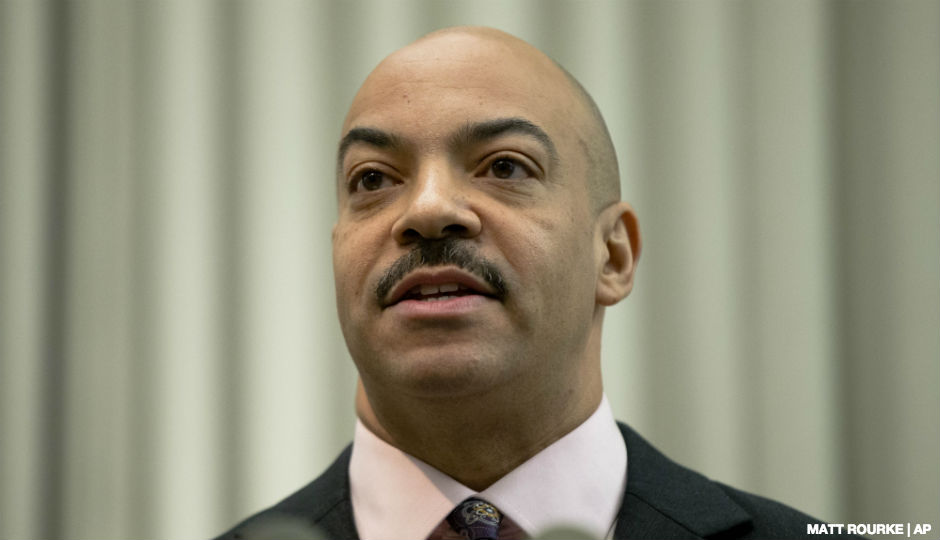OPINION: Crowded District Attorney Race Is Why We Can’t Have Nice Things

District Attorney Seth Williams | Photo by Matt Rourke/AP
There is an adage that goes: “To speak without thinking is to shoot without aiming.”
Someone should have told that to former federal prosecutor Joe Khan during a event featuring district attorney candidates at Philly for Change on South Street earlier this month. I was there to get a personal glimpse at three-fifths of the field that was at that point running against Seth Williams for the role of top prosecutor. In attendance were former city managing director Richard Negrin, former Municipal Court judge Teresa Carr Deni, and Khan. (Not present were Democrat Michael Untermeyer and Republican Beth Grossman, and the event was held before civil rights attorney Larry Krasner threw his hat in.)
I tried to ask all of the candidates questions based on my experiences. I inquired about Negrin’s dealings with protesters and their free-speech rights during the 2000 Republican National Convention, when he was an A.D.A., and I asked Deni what she was going to do about racial disparities in our city’s criminal justice system. Both gave brief but satisfactory answers.
Khan was the final candidate to speak, and I asked what felt to me like a reasonable question: “What would you have done differently if given the Brandon Tate-Brown case? And would you reopen the investigation?”
Khan looked confused. “I don’t know much about that case,” he finally answered. “I will have to read more about it.”
“Excuse me,” I replied. “You are running for district attorney and you don’t know much about one of the most controversial cases to hit the city in years?” The audience began to chatter, and Khan attempted to deflect the awkwardness by stating his “awareness of the turmoil in Ferguson.”
After that stumble, I knew that Khan would not be getting my vote. A man running on a platform to reform criminal justice who doesn’t seem knowledgable on issues that directly affect my life as a black Philadelphian doesn’t deserve to serve. So why is he still running?
Answer: Because everyone and their cousin wants to take political advantage of the fall of an incumbent. Now that current D.A. Seth Williams is no longer running for reelection (sigh of relief), we can expect more people to try to convince us that they can do the job. But perhaps that’s why our city hardly ever manages to secure significant political change — we either overcrowd or undercompete in political races.
Williams leaving the ever-mushrooming race guarantees that we will get a new — and arguably more refreshing — district attorney. Had he stayed in as the candidate pool increased, his chances of winning would have been higher as the new faces canceled one another out and most likely took votes away from the strongest challenger. But now my fear is that whoever is shaping up to be the political establishment’s pick will win due to the boost of ward leader support they will have and fundraising sway.
Translation: An open primary that could get any Democratic candidate elected will favor the party machine.
Our low voter turnout will make this very easy for an establishment favorite to slide in and take it, or possibly a new incumbent if Williams decides to resign before the primary. The latter scenario secured a D.A. victory for Lynne Abraham in 1991 when she replaced Ronald Castille once he resigned to run for mayor. And you can blame all of these overambitious, unknown political neophytes for messing it up for the rest of us if they stay put. A true one-on-one or three-person race with well-defined approaches among the candidates will be the only way we can actually bring out the vote — and have a more legitimate shot at getting a truly robust D.A.
D.A. candidate petitions are due March 7th, and by then we can expect to see a black candidate (or a second, or third one) possibly place their bets … but apparently, they’re still mulling a run. Hopefully, some of the more lackluster contenders who have already declared will get out before the new wave enters.
Because if not, I fear that the Democratic political machine’s choice (whoever it ends up being) will reign supreme — just like does for most of our other voting cycles.


